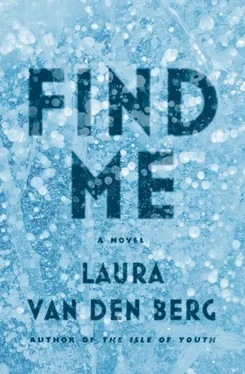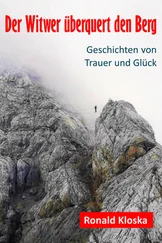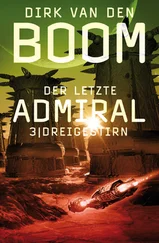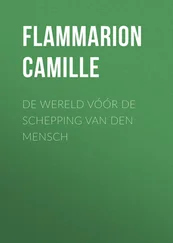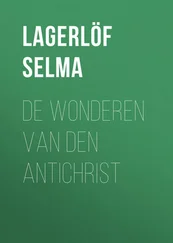* * *
I’m on a highway in Boston, passing through the Sumner Tunnel. I’m riding in the passenger seat. The driver is a heavy shadow. Is he wearing some kind of mask? The tunnel has turned the radio music to static. I am feeling very curious about the glove compartment. The car speeds past the tile walls and the tracks of white light on the ceiling. There are doors in the tile. Where do they lead? There is no traffic.
“Wake up, Joy,” I hear Louis say. I feel myself blinking. I’m sitting up in bed. I don’t know how long I’ve been back in my room.
“You’re talking in your dreams again.” I listen to him roll over, his voice thick with sleep.
He’s wrong, or maybe half-wrong: I wasn’t awake, but I wasn’t dreaming either.
0–6. Group home, Roxbury.
7–9. Foster with the Carroll family, Allston.
10–12. Group home for children, hundred-acre farm, Walpole.
13–14. Foster with Ms. Neuman, Charlestown.
15–17. Group home for teenage girls, Mission Hill.
18. Over and out.
* * *
If someone (my mother?) asked me to account for how I’ve spent my life, the Years is one place I could start.
* * *
Massachusetts Safe Haven Law, definition: “Voluntary abandonment of a newborn infant to an appropriate person at a hospital, police department, or manned fire station shall not by itself constitute either a finding of abuse or neglect or a violation of any criminal statute.”
For years, I did not think it was right that what my mother did to me could not be called a crime.
* * *
At the Stop & Shop, some people bought very strange things in the middle of the night. Chicken in a can, glow-in-the-dark condoms, fish guts wrapped in brown paper, baskets filled with little round tins of Ant-B-Gon, baskets filled with chewing gum, baskets filled with enough birthday candles to light the world’s largest cake, one whole coconut.
Once a man came in and said he was lost and asked me to draw him a map that would lead him to where he wanted to go. I drew one on a folded-up shopping bag and hoped my landmarks were clear. Once someone wanted to buy five shopping carts and the manager said, “No way.” The person gave up and left and the manager told me, “My price was a hundred dollars. I would have let them go for that.” More than once people brought us sagging bags of loose change, wanting cash in return. More than once I found a woman weeping in the Frozens section.
For a while a bagger with tattoos on his knuckles worked nights with me. He used to be in jail. When there was nothing else to do he would count and recount the numbers of each item on the shelves — thirty-five bags of hot dog buns, seven cartons of egg substitute, fourteen jars of grape jelly — and sometimes I would follow behind him and ask what he was doing, which I knew he found annoying, and he would say, “There is no enemy like time.”
After he left I worked with another guy who was always trying to play a joke where he snuck up behind me and put a plastic bag over my head, no matter how many times I told him that I did not find this funny at all.
If there were no shoppers, I would slip into the bathroom and sip a little more Robitussin and when I came out, the light was soft and running down the walls like rainwater.
Things I saw in the homes that made me frightened of real drugs: a boy who collapsed in a field, blue from the neck up; a girl who frothed at the mouth like a wild dog; a girl who got stabbed in the shoulder during a buy; countless zombie shuffles. Still, I envied the empty-headed place they went to, where nothing mattered and nothing hurt. Cough syrup, those hits of dextromethorphan, seemed like a not unreasonable way to manage my life.
I had a case manager, but I kept skipping our appointments. At these appointments, we were supposed to be getting me signed up for emotional wellness classes and college prep at Bridgewater State, even though I did not want to do any of those things.
“How can we be expected to help those who will not help themselves?” I can hear my case manager saying. I was never able to explain that the help I needed was a different kind.
The Stop & Shop was never robbed while I was working there, but it happened one night, at three in the morning, when the cashier who was always trying to put plastic bags over my head was on shift. The robbers wore stockings over their faces and packed the money into black JanSport backpacks, the kind high school students carry. They were very professional. They were out in under five minutes and it wasn’t until after they had disappeared into the night and the police had been called that the manager found this cashier collapsed in Paper & Plastics, a roll of paper towels clasped to his chest.
After that, people knew the Stop & Shop as the place where a cashier was killed in Paper & Plastics. A heart attack was the official cause of death, but we all knew fear was what got him.
* * *
On the way home from the Stop & Shop, the bus passed a construction site where a metal skeleton was rising slowly from the ground. A doctor’s office with a billboard ad for the flu shot: GET THE FLU BEFORE IT GETS YOU! Laundry World, a Laundromat with pool tables, and Beauty Island, which sold hair extensions called the Cinderella and body lotion with glitter inside. In East Somerville, we passed the evangelical church and a check cashing service and a discount store for maternity clothes.
At my stop, I would see the same man holding a newspaper over his head, even when it wasn’t raining. At my address, I would see the same woman smoking on the fire escape in a Celtics T-shirt and sweatpants, even after the cold began to settle in. I felt both soothed and suffocated by these routines.
In winter, in Harvard Square, nets shaped like gold stars hung between buildings.
Once I got on the wrong bus. I was not awake and not asleep and when I looked out the window, I was in Kendall Square. The bus stopped. I got out. The sky was a bruise. I was unsure of the time. I stood outside the Microsoft building and watched a boy on a skateboard cut through a barren park. For a second, I had crazy ideas about going inside and demanding a job that had to do with computers, but instead I decided to cross the Longfellow Bridge. I thought I would stand on the bridge and look out at the river and the downtown lights and the Citgo sign beaming out from Kenmore. I would walk down Charles Street and look in the shop windows and up the steep cobblestone hills, observing all the lives that could never be mine.
But when I reached the bridge, it was closed for construction. I followed detour signs through a tunnel, a long concrete tube stained with graffiti. I was alone and the tunnel was dark. The longer I walked, the longer the tunnel seemed.
Sometimes the same thing happens when I walk the Hospital halls: the white path seems to stretch on, the stairwell door moves farther away. The echo of my breath grows louder. We believe what we see, whether it’s real or not.
In my basement apartment, where it was dark regardless of the time, I would take more Robitussin and get into bed in my Stop & Shop uniform and hope for sleep. On the nights where the cough syrup failed to turn my brain to sludge, I would stare up at the ceiling and remember.
My second foster, Ms. Neuman, lived in a yellow house on Ferrin Street, between the water and Bunker Hill park, where an obelisk, a monument to battle, rose above the trees. The day I came, she was waiting on the curb, in a pink sweatsuit and flip-flops, her toenails painted gold.
“Joy, Joy, Joy,” she sang as she walked me up the driveway, her hand on the center of my backpack. White Christmas lights blinked in the windowsills, even though it was August. She smelled of cigarettes and rosy perfume. “Will you fill our house with it?”
Читать дальше
